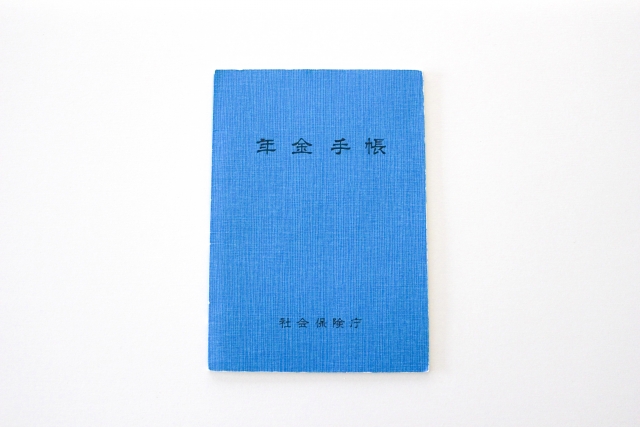Employee Benefits at Japanese Companies

by Madelaine
Employee benefits play a role for many when choosing their jobs. They not only impact how much money you get at the end of the month, but also your insurance, when you can take vacations, and much more.
A few basic benefits in Japan are defined under the Labor Law. Some others are not mandatory, but like commuting allowances which most companies grant, are a sort of social consensus. Then, companies can choose to add other ones they see fit. Here are the benefits you can expect when working (full-time) in Japan.
コンテンツ
1.Social Insurance
This one is non-negotiable. All full-time employees (exceptions exist) are enrolled in the Social Insurance (社会保険, しゃかいほけん). It provides health insurance, workplace insurance in case of accidents, pension, and unemployment insurance. The cost of social insurance is split 50:50 between the company and the employee.
1. Health Insurance
With health insurance (健康保健, けんこうほけん) one only has to pay 30% of all medical expenses in Japan, including dental.
READ ON Guide to Japanese Health Insurance.
In Japan, it is also common to have company-wide annual physical check-ups, including X-ray, eyesight, blood pressure, and other exams, depending on age and gender. This exam is free of charge. It is possible to add exams to the check-up menu, but they have to be paid for by the individual.
2. Labor Insurance
Workers’ compensation insurance
The workers’ compensation insurance or more literally the work accident insurance (労災保健, ろうさいほけん) kicks in when someone suffered a work-related injury. This includes accidents that happen on the way to and from work.
Unemployment Insurance
To be eligible for Unemployment Insurance (雇用保険, こようほけん) one must work at least 20 hours per week. The amount and duration benefits can be received depend on personal factors, such as reasons for unemployment, age, and how long one paid into the system.
READ ON Guide to Social Insurance Costs and Taxes in Japan
3. Pension
Pension benefits (厚生年金, こうせいねんきん) are available for everyone who has worked in Japan for at least 25 years and is at least 65 years of age. Foreigners who work in Japan for more than 6 months but less than 25 years are able to get their pension premiums back within two years of leaving Japan.
Paid Leave
1. Annual Paid Leave
Every employee has a right to paid leave. Full-time employees get 10 days of paid leave after the first 6 months at the company. Paid leave increases according to the time spent at a company. After 6.5 years employees have 20 days of paid leave per year.
Note that paid leave is also used in case of sickness, as there is no paid sick leave system in Japan.
READ ON Find out more about Annual Leave.
2. Maternity Leave
During maternity leave (出産休暇, しゅっさんきゅうか) the Social Health Insurance covers up to 2/3 of the base salary. This is granted for a duration of 6 weeks (42 days) before the (expected) date to 8 weeks (56 days) after giving birth. If one receives money from one’s company during the leave, the insurance will deduct the amount from the money they pay out.
3. Child Care Leave
A similar amount of up to 2/3 of the base salary is paid by the social insurance to employees on child care leave (育児休業, いくじきゅうぎょう). When maternity ends, child care leave kicks in after the 8ths week and ends the day before the first birthday of the child. Both women and men can take child care leave. In the case that both take a leave the duration can be extended until the age of 14 months.
4. Nursing Care Leave
Nursing Care Leave (介護休業) is granted to take care of close-relatives for up to a maximum of 93 days and can be taken in up to three installments. For long-term care it is possible to arrange shortened working hours.
5. Special Occasions
Death in family
Up to 5 days for parents, up to 3 days for grandparents, siblings, spouse’s parents, up to 2 days extra when one is the main mourner and is organizing the funeral.
For family outside of Japan, these are somewhat tight time frames, but in most cases one can add one’s paid leave to extend the duration.
Buddhist memorial service
In Japan, families have services one year after someone passed away. To attend the service for parents, spouse, or child one can get one day off.
Transfer leave
Up to 5 days to relocate upon your company’s request.
Leave for marriage
Up to 5 days off for one’s honeymoon!
Leave for jury service and Public work leave
Extra leave can be granted for the above two activities.
Company-specific leave
On job ads, one can often see some of these additions below. They are not additional paid leave! Here the company promises that one can take these days off (using one’s paid leave or national holidays).
年末年始 (ねんまつねんし) – New Year’s break
夏季休暇 (かききゅうか) – Summer Vacation (Obon in August)
週休2日 (しゅうきゅう) – Weekends off
アニバーサリー休暇 (きゅうか) – Right to take a day off for family birthdays
Monetary Benefits
Commute Cost
It is not required by law, but almost all Japanese companies refund costs for the daily commute.
Overtime Pay (Article 36)
The Japanese Labor Law sets the limits for overtime at 5 hours per day, 45 hours per month, and 360 hours per year. When working overtime employees have the right to receive extra overtime pay.
- Overtime (over 8 hours): + 25%
- Night time (22:00-5:00): +25 %
- Weekends/Holidays: + 35 %
Business expenses
Company-related expenses incurred for business trips etc. are fully reimbursed. These refunds are excluded from taxation and will be handled separately from salary payments.
Company-specific benefits
In addition to the above companies can add further benefits. A common one for instance is a housing allowance (住宅手当). Very Japanese is the Attendance allowance (精勤手当). Some might know this one from Japanese school, where the kid with perfect attendance received a small stipend. Some foreign companies might also grant sick leave. Beyond this, it is really up to your imagination. Whether it is club activities, company trips, or a cafeteria, possible benefits come in all forms.
Share your finds! Any surprising benefits or some you didn’t really get on a job ad?
Recommended Posts

How to Get Along with Your Japanese Boss
25 5月 2021 - Work, Working Culture

The 10 Most Popular Japanese Companies in 2021
19 5月 2021 - Work





